- interafricanc@gmail.com
- ECA/ Africa Hall, Menelik Avenue P.O Box 3001, Addis Ababa, Ethiopia
Resolution
- DECISIONS ADOPTED DURING THE 17th AFRICAN UNION SUMMITMalabo, 1st July 2011 – African Union (AU) Heads of State and Government meeting at their 17th Ordinary Session in Malabo, Equatorial Guinea, from 23 June to 1st July 2011, under the Theme: “’Accelerating Youth Empowerment for Sustainable Development’’, adopted the following Decisions.On the theme “’Accelerating of Youth empowerment for sustainable development’’, the Assembly decided:
- that all Member States should advance the youth agenda and adopt policies and mechanisms towards the creation of safe, decent and competitive employment opportunities by accelerating the implementation of the Youth Decade Plan of Action (2009-2018) and the Ouagadougou 2004 Plan of Action on Employment Promotion and Poverty Alleviation;
- that the Commission in collaboration with its partners should elaborate a Technical and Vocational Education and Training (TVET) framework, addressing specifically the domains of Agriculture and ICT, while accelerating the implementation of the Youth Decade Plan of Action;
- That Member States provide to the Commission adequate resources for the advancement of the Youth Agenda, including the funding of the Pan African Youth Union;
- To organize on the margins of every June/July Summit a training programme for the Youth Volunteers
- That all trained Young Volunteers should be deployed as soon as possible after their training including placement in the AU organs and the Regional Economic Communities as part of capacity building for young professionals;
- That the African Union Commission should lead the organization of a side event on “Accelerating youth empowerment for Sustainable Development” under the leadership of the Chairperson of the AU, during the United Nations High-Level Meeting on Youth in July 2011 at the UN Headquarters whose theme is “Cooperation towards Financing Youth Development and Empowerment in Africa”.
On the support of a draft resolution at the 66th ordinary session of the General Assembly of the United Nations to ban genital mutilation in the world, the Assembly expressed deep concern at the continued practice of FGM in spite of numerous campaigns conducted over the last thirty years.
It urged all Member States of the African Union to provide strong support for efforts to adopt a draft resolution to ban female genital mutilation worldwide, which draft will be submitted to the Sixty-sixth session of the General Assembly of the United Nations.
On the establish an African Centre of Excellence in Information and Communication Technologies in Tunis, Republic of Tunisia, the Assembly recognised the importance of the role that the Centre will play in promoting ownership of ICTs by the Continent, developing African competence and raising the awareness of decision-makers on the major issues of the sector.
It requested the Commission, in collaboration with the Government of the Republic of Tunisia, to begin the necessary negotiations with the various partners of Africa in order to implement the project and submit a report thereon to the forthcoming session of the Assembly.
On the situation in Libya, the Assembly reaffirmed all earlier AU decisions on the situation in Libya and its conviction that only a political solution will make it possible to fulfill the legitimate aspirations of the Libyan people and preserve the unity and territorial integrity of the country.
In this respect, the Assembly stressed the continued relevance and validity of the AU Roadmap as articulated by the PSC at its 265th meeting.
It endorsed the proposals for a Framework Agreement on a Political Solution to the Crisis in Libya, as presented by the ad hoc Committee, within the context of the AU Roadmap and the relevant United Nations Security Council resolutions.
It requested the ad hoc Committee to submit these proposals to the Libyan parties, namely the Government of the Libyan Arab Jamahiriya and the Transitional National Council (TNC) of Libya, and to engage them on that basis, including through the early convening of negotiations under the auspices of the AU and the United Nations, with the support of the League of Arab States, the Organization of the Islamic Conference and the European Union.
It urged the Libyan parties to demonstrate the required political will, place the supreme interest of their country and people above any other considerations, and extend the necessary cooperation to the High-Level ad hoc Committee.
It further urged international partners, in particular the United Nations Security Council and its members and relevant bilateral partners, to support the African initiative and the search for a political solution, as the best way of achieving the mutually-reinforcing objectives of peace, democracy, the rule of law and national reconciliation in Libya.
The Assembly underscored that the role of the AU is formally recognized by UN Security Council resolution 1973 (2011) and is fully consistent with the provisions of Chapter VIII of the UN Charter and the unique contribution that the ad hoc Committee can make for the resolution of the current crisis.
It requested the ad hoc Committee to report regularly to the PSC and to its 18th Ordinary Session on its efforts towards a political solution to the crisis in Libya.
On the NEPAD Heads of State and Government Orientation Committee (HSGOC), the Assembly reiterated the urgent need for Member States to adequately fund NPCA and its programmes to ensure the delivery of its mandate given the current financing constraints.
It took note with satisfaction of the substantial progress made in the integration of NEPAD into the structures and processes of the African Union pursuant to the Assembly Decision of the Fourteenth Ordinary Session of the Assembly and commended the Chairperson of the African Union Commission and the Chief Executive Officer of the NEPAD Planning and Coordinating Agency (NPCA) for working to strengthen the Agency’s institutional capacity to deliver on its mandate.
It accordingly requested the Commission and NPCA in conjunction with the United Nations Economic Commission for Africa (UNECA) and other partners to recommend appropriate mechanisms on domestic resource mobilization and present to the next HSGOC for consideration.
It welcomed the outcomes of the G8-Africa Partnership Summit held in Deauville, France in May 2011 relating to shared values and responsibilities in consolidating the continent’s good progress in peace and security, and economic growth with mutual accountability as the main pillars of the partnership.
It reaffirmed full support for the G20 Seoul Development Consensus on Shared Growth as the new development paradigm and its consistency with the NEPAD vision, and reiterated Africa’s call for adequate and effective representation in the G20 and the underlined desire to continuously and constructively engage the G20 High Level Infrastructure Panel on creative financing and investment options for the continent’s infrastructure projects, with the expressed position that the public sector remains the major player in infrastructure development.
It recognized the invaluable opportunity provided by upcoming global processes to convey the African voice and consensus on development policy issues including Climate Change and Aid Effectiveness.
At the end of the deliberations of the 17th AU Summit, the Heads of State and Government adopted the following Declaration:
DECLARATION ON CREATING EMPLOYMENT FOR ACCELERATING
YOUTH DEVELOPMENT AND EMPOWERMENT
WE, the Heads of State and Government of the African Union, meeting at our Seventeenth Ordinary Session in Malabo, Republic of Equatorial Guinea, from 30 June to 1 July 2011;
DEEPLY CONCERNED about the rise in unemployment and under-employment in Africa, particularly among the youth and the serious threat they pose to social cohesion, political stability and the future socio-economic development prospects of our various countries;
RECALLING the African Youth Charter and the Protocol to the African Charter on Human and Peoples’ Rights on the Rights of Women in Africa;
ALSO RECALLING the Ouagadougou Declaration and Plan of Action on Employment Promotion and Poverty Alleviation; the AU Social Policy Framework; the AU Migration Policy Framework; the African Women Decade 2010-2020; the African Youth Decade Plan of Action, 2009-2018; and other related policy documents, as well as the Millennium Development Goals, all together aimed at improving the well-being of African people;
WELCOMING outcomes of the G20 Summits in London and Pittsburgh on strong, sustained and balanced global growth;
CONVINCED that employment promotion measures should be driven by interventions based upon solidarity and equality, transparency and accountability, and supported by the State, Private Sector, Employers and Trade Unions, and Civil Society Organizations to foster cohesion and social integration in African societies;
FURTHER CONVINCED that the promotion of productive youth employment is vital to youth empowerment;
Hereby COMMIT to the following:
- REAFFIRM individually and collectively, our previous commitments aimed at accelerating job creation, reduction of poverty, social protection for our people and the social development of Africa. In this regard, we re-dedicate ourselves and commit our countries to accelerate efforts to reduce unemployment and under-employment of Africa’s Youth and Women and thereby attain all MDGs by 2015;
- REDUCE Youth and Women unemployment by at least two percent annually over the next five years as contained in the Youth Decade Plan of Action 2009-2018;
- MAINTAIN, extend and harmonize Labour Market Information Systems in support of employment policy formulation, implementation and evaluation;
- IMPROVE and increase responsiveness of the education and training systems to current and future labour market needs in order to address the pervasive and structural skills mismatch;
- PROVIDE STEWARDSHIP as national Governments and achieve policy coherence in National and Regional Certification Frameworks for Education and Vocational Training, as well as the development of integrated and cross-sectoral National and Regional Youth Employment Action Plans;
- ACCELERATE appropriate social protection coverage expansion for the youth, women, informal economy and rural workers and members of their families, in order to reduce poverty and vulnerability;
- CALLS on Member States which have not yet done so to sign, and ratify the African youth Charter;
- REQUEST the African Union Commission to work with the African Development Bank (AfDB), the RECs and international partners, on a comprehensive youth employment pact, with mechanisms that will ensure its implementability at national level through strong ownership by the key Line Ministries, Employers and Trade union organisations, women and youth organisations and the Private Sector, with clear Monitoring and Evaluation system;
- REQUEST the Commission, in close collaboration with the AfDB, to advocate for effective implementation of the G20 commitments made on labour and social protection during the London and Pittsburgh Summits to the benefit of African countries;
- URGE the Commission, in close collaboration with the AfDB, to prepare and submit to the next Ordinary Session of the Assembly, the modalities for funding of the Plan of Action on Employment Promotion and Poverty Alleviation
- REQUEST the Commission to annually report to this Assembly on progress made in the implementation of this Declaration
SOLEMN DECLARATION OF THE ASSEMBLY OF THE UNION ON SUDAN
We, the Heads of State and Government of the African Union (AU), meeting at our 17th Ordinary Session in Malabo, Equatorial Guinea, from 30 June to 1 July 2011, reviewed the situation in Sudan. Our deliberations were informed by the progress that the Sudanese parties continue to make in their quest for lasting peace, justice and reconciliation in their country, in spite of the many challenges confronting them.
We reiterate our appreciation to the people of Sudan, under the leadership of President Omar Hassan Al Bashir and First Vice-President and President of the Government of Southern Sudan (GoSS), Salva Kiir Mayardit, for having successfully conducted the self-determination referendum of January 2011 for Southern Sudan, the main pillar of the Comprehensive Peace Agreement (CPA). In so doing, the people and leaders of Sudan have, once again, demonstrated their capacity, with genuine support from the international community, to address the myriad of challenges confronting them. We commend President Al Bashir for having promptly accepted the results of the referendum, in keeping with the undertaking that he made to respect the will of the people of Southern Sudan, whatever their choice is.
As we look forward to welcoming Southern Sudan as the newest Member State of the African Union, immediately upon its independence on 9 July 2011, We would like to commend the people of northern Sudan, who have taken the unprecedented and generous step of accepting self-determination for their brethren. We emphasize that northern and southern Sudan are equally African nations.
We note with appreciation that our present Summit coincides with further progress in the resolution of the pending issues in the implementation process of the CPA. In this respect, we welcome the signing, in Addis Ababa, on 20 June 2011, by the Government of Sudan (GoS) and the Sudan People’s Liberation Movement (SPLM), of an Agreement on Temporary Arrangements for the Administration and Security of Abyei Area, under the facilitation of the AU High-Level Implementation Panel (AUHIP). This Agreement will enable security to be established and displaced persons to return to their homes in that district, as well as create conditions under which the Panel can make its recommendation on the final status of Abyei at a time to be agreed upon. We commend the Government of Ethiopia for its invaluable contribution to the conclusion of this Agreement and for its decision to deploy a force, under a UN mandate, to facilitate its implementation.
We hail the Framework Agreement on Political Partnership and Political and Security Arrangements in Blue Nile and Southern Kordofan, signed, under the facilitation of the AUHIP, in Addis Ababa, on 28 June 2011, by the Government of Sudan and the Sudan People’s Liberation Movement (North), as a decisive step towards consolidating peace, security and democracy in the Republic of Sudan. We congratulate the parties on their commitment to the peaceful resolution of their differences and call upon them immediately to cease hostilities, allow humanitarian access, and facilitate the return of displaced persons to their homes.
We are confident that the Sudanese Parties to the CPA will continue to demonstrate the commitment required to complete the implementation of the CPA and finalize the post-referendum negotiations, with the support of the AUHIP and in the spirit of creating two viable states, mutually supportive and at peace with one another.
We stress the need for renewed efforts to settle in a peaceful and comprehensive manner, the conflict in Darfur: the people of Darfur have suffered too much and for too long, and a lasting solution must be found for their predicament. In this respect, We note with satisfaction the conclusion of the Doha political talks and the endorsement by the All Darfur Stakeholders Conference held in Doha, from 27 to 31 May 2011, under the auspices of the Joint Chief Mediator and the Government of the State of Qatar, of the draft outcome document, which provides a basis for the achievement of peace.
Aware of the exceptional circumstances that the Sudan is currently going through, We pledge, once again, our continued support to its efforts to decisively deal with the challenges facing it.
We strongly call on our partners within the international community to extend all the supports required to enable Sudan successfully complete the processes it is engaged in. In particular, We, once again, urge:
- the United Nations Security Council to positively respond to the AU’s request for the deferral of the process initiated by the International Criminal Court (ICC), in line with Article 16 of the Rome Statute. In this respect, We request the African members of the Security Council, working closely with the Commission, to speedily table a draft resolution for consideration by this organ;
- the complete normalization of relations between the international community and Sudan, as well as speedy steps for the cancellation of Sudan’s debt, to ensure that its people can enjoy peace, dignity, democracy and development;
We express our support to the Doha Framework Document, and call upon all our partners and the other members of the international community to fully support it.
We urge all the armed movements in Darfur that have not yet done so, to, wholeheartedly and without any further delay, join the peace efforts. We request the Peace and Security Council to consider taking measures against armed movements refusing to join the peace process, and urge our partners, including the UN Security Council, to support such measures.
We reiterate our full support to the early launching of the Darfur Political Process led by the AUHIP and UNAMID, so as to achieve a comprehensive and inclusive peace in Darfur, and express our appreciation to the commendable work being done on the ground by UNAMID.
We commit the AU and engage the international community as a whole to continue to assist the peoples of Sudan as they open a new chapter in their history.
The Summit also adopted the following Resolution:
RESOLUTION ON THE LIFTING OF THE ECONOMIC AND TRADE EMBARGO IMPOSED ON THE REPUBLIC OF CUBA BY THE UNITED STATES OF AMERICA
We, the Heads of State and Government of the African Union meeting in our Seventeenth Ordinary Session in Malabo, Equatorial Guinea, from 30 June to 1 July 2011;
- RECALL our Resolution Assembly/AU/Res.1(XV) adopted by our Assembly at its 15th Ordinary Session held in Kampala, Uganda, on 27 July 2010, and in particular, the call made to the Government of the United States of America to lift the long-standing and unjustifiable economic and trade embargo imposed on the Republic of Cuba, and thus enable it to enjoy all the legitimate prospects for its sustained development;
- REITERATE our call and once again INVITE the United States of America to lift the long-standing and unjustifiable sanctions imposed on the Republic of Cuba.
- Resolution 67/146
- So far, one revised versions, Resolution 69/150 has followed the original resolution. More revised versions will follow as needed.









